Cook county schools have a budget shortfall problem, and they think they can solve it only by furloughing teachers. Remind me again why we're wasting $1 billion a year on prisons, including private prisons for the profit of private prison shareholders and executives (like CCA CEO Damon Hininger's $3 million a year) and we're furloughing teachers instead?
Greg Gullberg wrote for WCTV 10 May 2012, Teachers in Cook County Face Furloughs,
The Cook County School System is facing a $472,352 deficit.
Superintendent Lance Heard tells Eyewitness News reporter Greg Gullberg that the only way out may be to initiate system-wide furlough days and cutting jobs.
"We've done everything we can to maintain the level of education for the students that we've always had and we think we've been able to do that," said Superintendent Heard.
Nothing is set in stone yet, but 488 teachers, staff and administrators, may be facing furlough days next school year. Superintendent Heard hopes to limit them to three to five per employee.
"I would like to say also that when we do take furlough days, they are always none instructional days. The students do not miss any school," said Superintendent Heard.
Yet. Keep on in this direction and the students will be missing school. As it is, they just get less-prepared teachers, for less-effective teaching. But this is not Supt. Heard's fault.
Do we in Georgia want to prepare students for jail, or to succeed in life? Prisons cost we the taxpayers lots of money. Successful young people help pay for everything. Maybe we should choose successful young people, starting with education.
-jsq
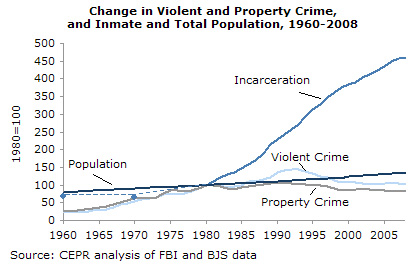




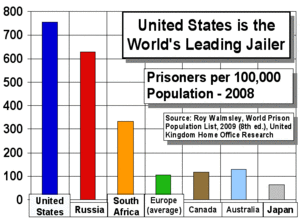
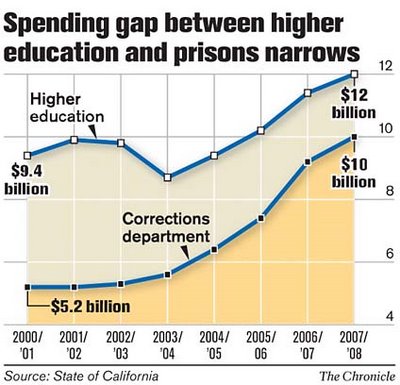



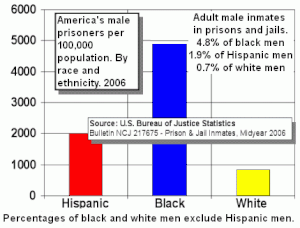

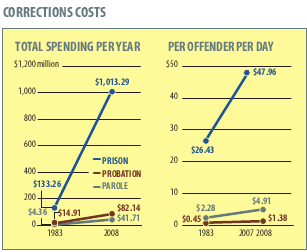 That costs us more than a billion dollars a year in tax money,
5.9% of the state budget.
That’s up from $133.26 million in 1983, increased by more than a factor of seven.
That costs us more than a billion dollars a year in tax money,
5.9% of the state budget.
That’s up from $133.26 million in 1983, increased by more than a factor of seven.
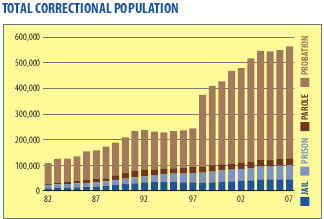 Meanwhile, the correctional population swelled from around 100,000 in 1982 to more
than 550,000 in 2007.
And while other states have started decreasing their prison populations,
Georgia’s
Meanwhile, the correctional population swelled from around 100,000 in 1982 to more
than 550,000 in 2007.
And while other states have started decreasing their prison populations,
Georgia’s 

